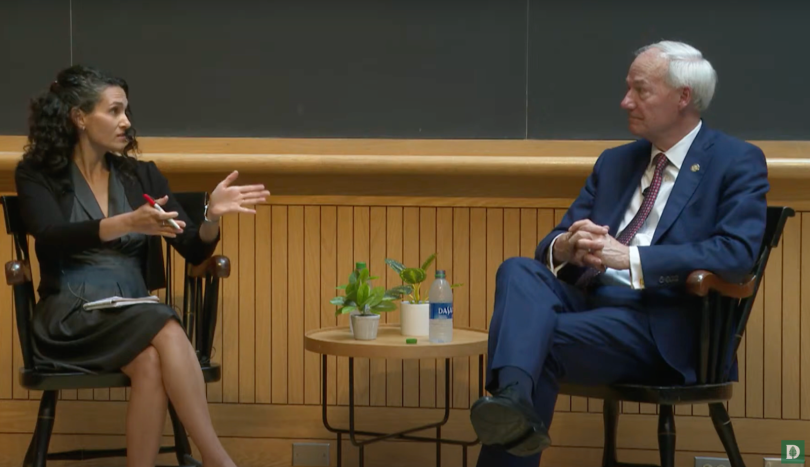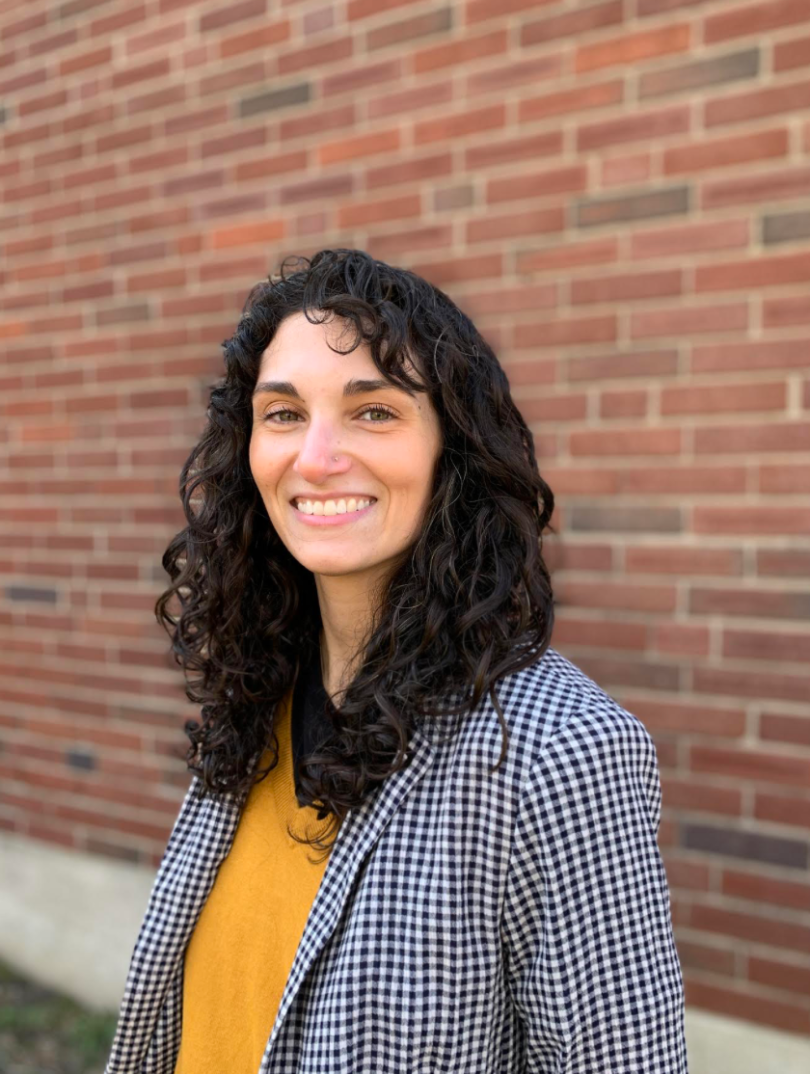
Q&A with Government Professor Mia Costa
1. Can you tell me a little bit about yourself and what initially drew you to teach at Dartmouth?
I'm from New York and was always interested in politics. I studied political science in my undergrad, and in my first semester, I took a class on Ancient Greece and political theory. I remember looking at my professor and thinking, "that's what I want to do—I want to be the person at the front of the room who knows what they're talking about." After graduating, I took a few years off before going back to graduate school. During that time, I worked in politics and traveled a bit. As I went through my PhD, I refined my focus on what I wanted to research and teach. Dartmouth was really appealing to me because it's a top-notch school with amazing faculty, research resources, and collaborative opportunities. I was drawn to the quality of scholarship here, and I love that Dartmouth is a top research university while still having a small, tight-knit, liberal arts college feel. The students are great to work with, and the faculty are incredibly supportive.
2. What do you think sets Dartmouth's Government Department apart from other schools?
I would say the teacher-scholar model is a major strength. Many schools claim to have this model, but it's actually difficult to balance top-tier research with strong undergraduate teaching. At Dartmouth, we do this really well. Our faculty are highly productive researchers, but since we don't have a PhD program in the Government Department, our focus is entirely on undergraduates. At many other schools with top scholars, faculty often prioritize mentoring PhD students, but here, we are dedicated to training and engaging with undergrads in a very real way. That's a major advantage of the department—it offers students direct access to leading scholars who are deeply invested in their education.

3. What opportunities exist for students in the Government Department outside the classroom?
One of the biggest opportunities is getting involved in research. That's been my main way of engaging with students outside of class. There are also study abroad programs, but my focus has been on conducting research with undergraduates. Through programs like the Undergraduate Research and Advising at Dartmouth (URAD) program, students can look up faculty research projects and reach out to get involved. Some students have come to me directly, asking how they can participate in research. I've worked with students as research assistants, helping with data collection or literature reviews, and others have taken on more active roles—coming up with ideas, building theories, designing empirical studies, and even submitting papers for peer review in real academic journals. Conducting original research is an incredibly valuable experience, as it gives students insight into the process of producing new knowledge.
4. What research are you working on right now, and what is your area of expertise?
My area of expertise is political representation in American politics—how elected officials represent us, what they say and do, and how voters respond. I focus on what people want from representation, their attitudes toward candidates, and perceptions of government. Right now, I'm working on several projects. I have a book coming out in exactly a month, which I'm really excited about. It's called How Politicians Polarize: Political Representation in an Age of Negative Partisanship, and it explores how politicians talk about the opposing party versus discussing policy and legislation, and how this fuels polarization in the U.S. Another project I'm working on examines how different issue areas are associated with the representation of specific racial groups. For example, if a politician focuses on criminal justice or poverty, people tend to assume they are advocating for the Black community. I'm studying how these perceptions shape actual political representation—whether politicians are more responsive to certain racial groups when discussing issues that are perceived as racialized.

5. Can you talk about your favorite parts of teaching GOV 3 (The American Political System) and GOV 83 (Political Representation)?
GOV 3 is really fun because it introduces students to the study of American politics. Everyone has political opinions—whether they realize it or not—so my job is to help students move beyond their preconceptions and think about politics as scholars. It's rewarding to see students challenge their existing beliefs and engage with political science from an empirical and theoretical perspective. GOV 83 is an upper-level seminar, so it's smaller and discussion-based. At the beginning of the term, I survey students to see what topics they're most interested in, and I design the syllabus with student interests in mind. We cover foundational research on representation as well as newer, cutting-edge studies. The class explores big questions, like whether elections are enough to hold politicians accountable and how inequalities in representation play out across race, gender, and age. For example, we discuss the implications of the fact that the median age in Congress is 72—how does that affect representation? Are young people's policy interests adequately represented? I love that students take ownership of their learning in this class and drive much of the discussion.
6. What would you tell prospective students who are considering studying Government at Dartmouth?
I'd say, great—talk to some of the professors and keep your options open! I want to welcome students into the Government major, but I also emphasize that Dartmouth offers so many different academic opportunities. Take some mid-level Government classes that interest you without worrying too much about specializing right away. There's value in developing deep expertise in a subject, but undergrad is also a time to explore and figure out what you're passionate about. Don't stress too much about perfecting your D-Plan at first—just take classes that intrigue you and talk to faculty. I truly believe we have some of the best professors and students in the country, and it's an amazing place to study Government. But ultimately, you'll know if it's the right fit for you once you start engaging with the department.



















